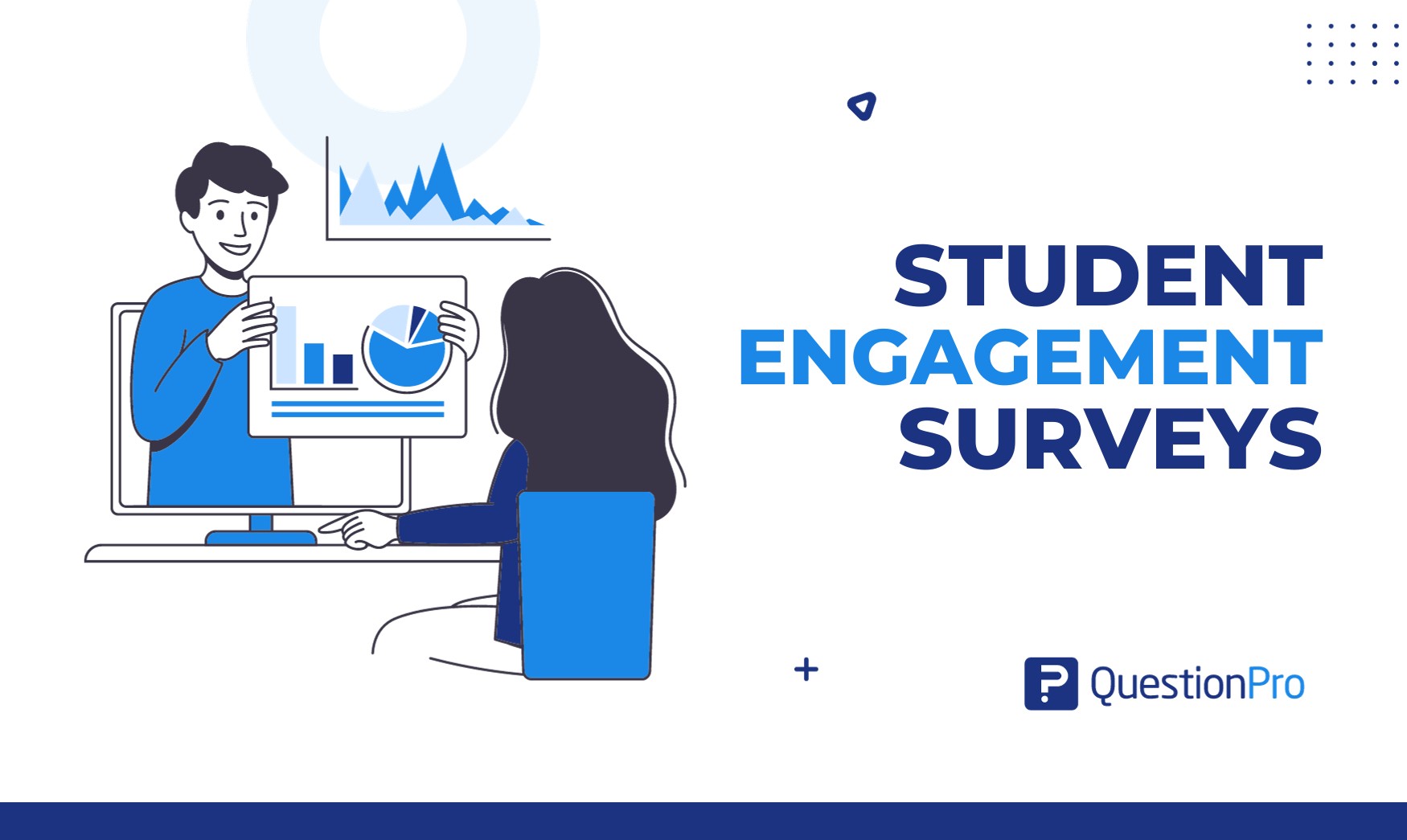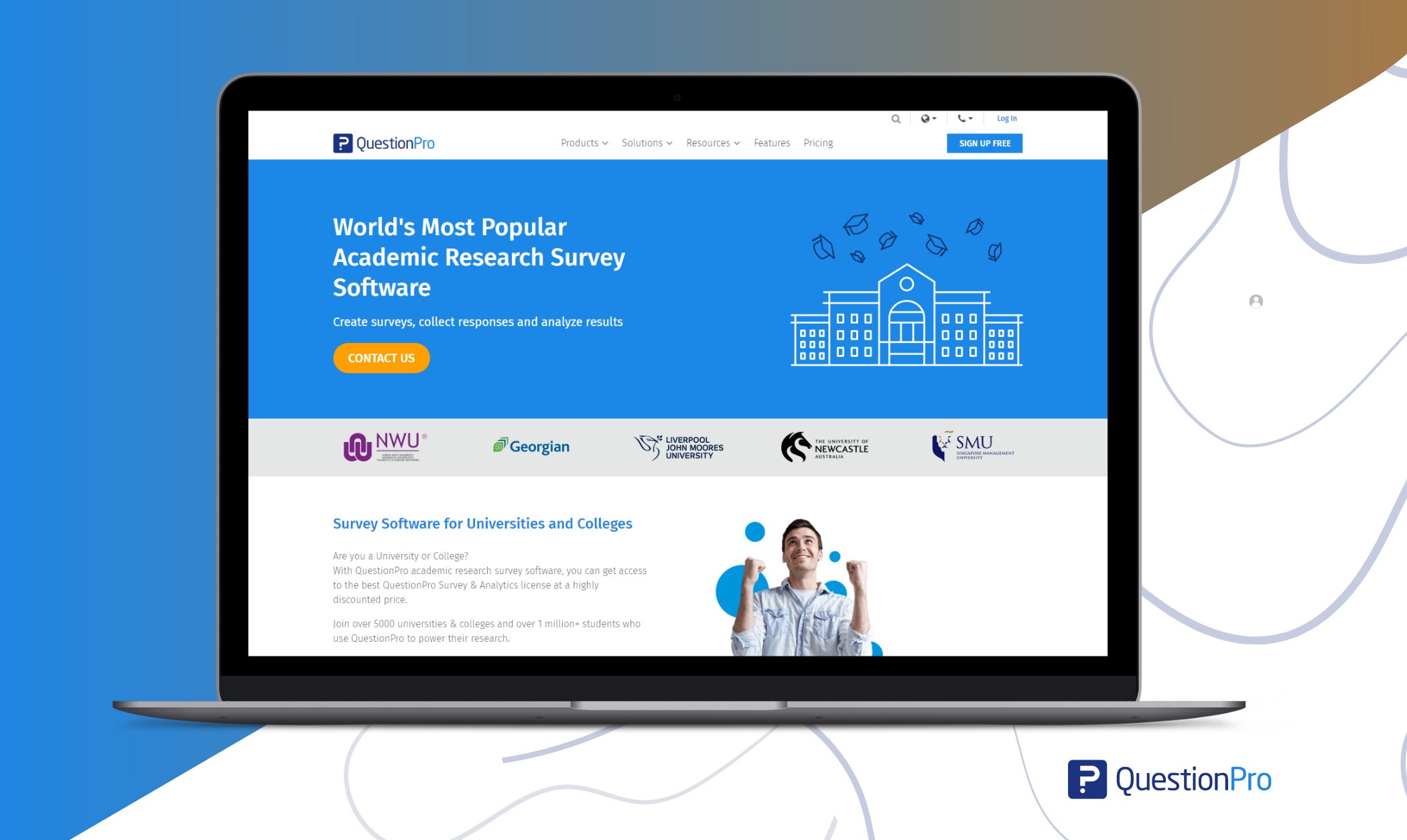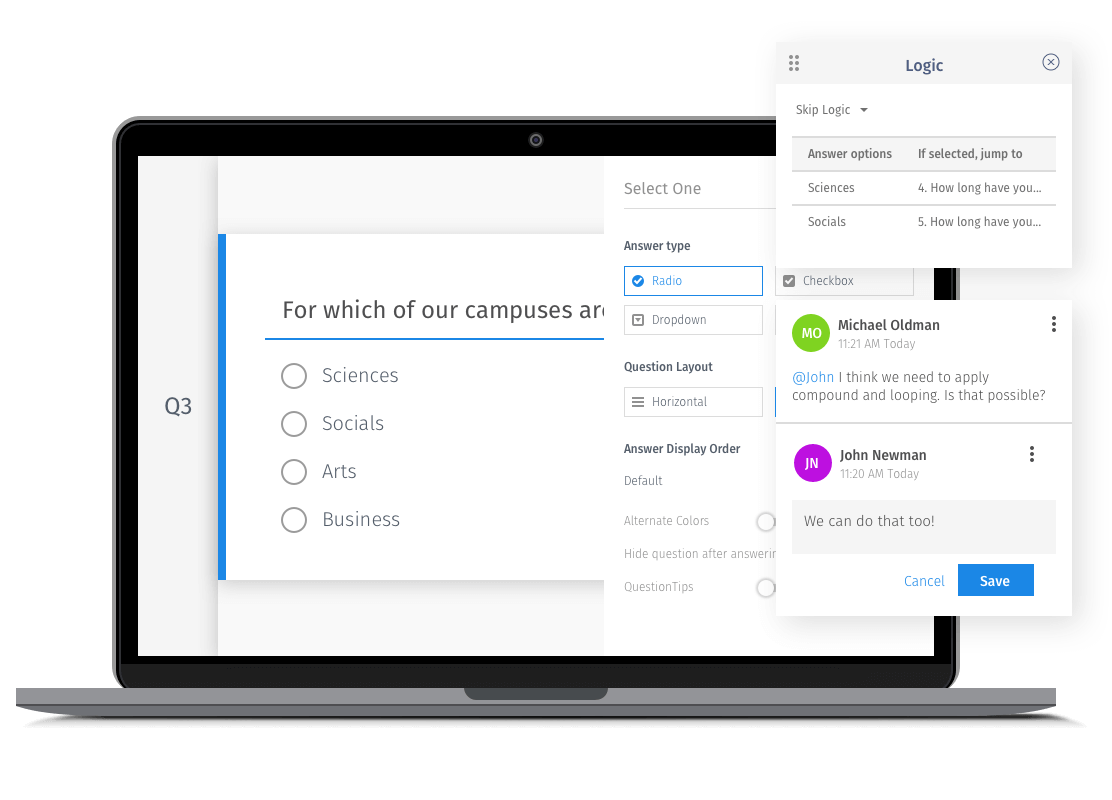
Student engagement is critical in the educational journey, influencing academic success, personal development, and overall student satisfaction. To enhance the learning experience, educational institutions often turn to student engagement surveys. These surveys provide valuable insights into the students’ experiences, perceptions, and levels of involvement.
In this comprehensive guide, we will explore the importance of student engagement surveys, how to design effective surveys, and how institutions can use the collected data to foster a more engaging learning environment.
What are Student Engagement Surveys?
Student engagement surveys are instruments designed to measure and assess students’ involvement, interest, and interaction with their educational experiences.
These surveys aim to gather information about students’ perceptions, attitudes, and behaviors related to their learning environment, curriculum, teaching methods, and overall educational experience.
The primary goal is to understand how engaged students are in their academic pursuits and to identify factors that may positively or negatively influence their level of student engagement.
Key elements typically covered in student engagement surveys may include:
- Academic Engagement: This assesses students’ involvement in and commitment to their academic work, including attendance, participation in class discussions, completion of assignments, and interaction with course materials.
- Social Engagement: This looks at students’ involvement in social activities, interactions with peers and faculty, and their sense of belonging within the educational community.
- Emotional Engagement: This measures students’ emotional investment in their learning, including their level of interest, motivation, and the extent to which they find the learning experience meaningful.
- Perceived Support: This assesses students’ perceptions of the support they receive from teachers, administrators, and peers, as well as the availability of resources to help them succeed academically.
- Learning Environment: This includes factors such as the quality of teaching, the relevance of the curriculum, and the overall atmosphere of the learning environment.
Implementing Best Practices for Conducting Student Engagement Surveys
Implementing student engagement surveys involves more than just distributing a questionnaire. It requires thoughtful planning, effective communication, and a commitment to acting on the feedback received. Here are the good practices for successfully implementing a survey of student engagement:
01. Pilot Test the Survey
Before distributing the survey to a larger audience, conduct a pilot test with a small group of students to identify any issues with clarity, wording, or survey flow. Use their feedback to refine the survey.
02. Anonymous and Confidential
Ensure that the survey is anonymous to encourage honest and open responses. Assure students that their feedback will be kept confidential, fostering a sense of trust.
03. Use a Mix of Question Types
Incorporate a variety of question types, such as multiple-choice, open-ended, and Likert scale questions. This provides a more comprehensive view of student opinions and experiences.
04. Timing Matters
Choose an appropriate time to administer the survey, considering the academic calendar and students’ schedules. Avoid high-stress periods like exam weeks and ensure students have enough time to complete the survey thoughtfully.
05. Communicate the Importance
Communicate why the survey is important and how the feedback will be used. This helps motivate students to participate and provides context for their responses.
06. Accessibility and Inclusivity
Ensure the survey is accessible to all students, including those with disabilities. Use precise language and consider providing translations if applicable to reach a diverse student population.
07. Offer Incentives
Consider providing small incentives to encourage participation. This could be in the form of extra credit, entry into a prize draw, or some other acknowledgment of their contribution.
After analyzing the survey results, share key findings with the student body. This demonstrates transparency and shows that their feedback is valued. Additionally, communicate any actions taken or planned based on the survey results.
09. Regularly Administer Surveys
Implement regular surveys to track changes in student engagement over time. This allows you to assess the impact of interventions and make informed decisions to improve the learning environment continuously.
10. Engage Stakeholders
Involve relevant stakeholders in the survey process, such as:
- Faculty
- School administrators, and
- Student representatives.
Their input can help shape survey questions and ensure the results are effectively used.
Types of Questions to Ask on a Student Engagement Survey
Designing effective questions is crucial for obtaining valuable insights from a student engagement survey. The questions should be clear, concise, and focused on specific aspects of the student experience. Here are different types of questions to consider when creating a student engagement survey:
1. Demographic Questions
- What is your academic major?
- What is your year of study?
- What is your age range?
- Which campus facilities do you utilize most frequently?
2. Overall Satisfaction
- How satisfied are you with your overall educational experience?
- On a scale of 1 to 10, how likely are you to recommend this institution to others?
- What aspects of the institution contribute most to your satisfaction?
3. Academic Experience
- How challenging do you find your coursework?
- Are your classes intellectually stimulating?
- How satisfied are you with the feedback provided by your instructors?
4. Teaching and Instruction
- How effective are your instructors in facilitating class discussions?
- To what extent do instructors use innovative teaching methods?
- How accessible are your instructors outside of class?
5. Campus Resources and Facilities
- How satisfied are you with the library resources and services?
- Are campus facilities conducive to your academic needs?
- How would you rate the availability of computer labs and technology?
6. Extracurricular Activities
- To what extent are you involved in campus clubs and organizations?
- How satisfied are you with the variety of extracurricular activities offered?
- Do these activities contribute to your overall college experience?
7. Support Services
- How satisfied are you with academic advising services?
- Have you utilized career counseling services?
- How effective are support services for mental health and well-being?
8. Campus Culture and Diversity
- How inclusive do you find the campus environment?
- To what extent do you feel a sense of belonging within the student community?
- How diverse are the perspectives represented in your courses?
9. Technology and Learning Tools
- How satisfied are you with the learning management system (LMS)?
- Do you find technology enhances your learning experience?
- Are online resources readily available and user-friendly?
10. Future Plans and Career Preparation
- How confident are you in your post-graduation career prospects?
- Have you participated in internships or co-op programs?
- To what extent does the institution prepare you for your future career?
11. Open-Ended Questions
- What suggestions do you have for improving the student experience?
- Are there specific challenges you face that the institution should address?
- Describe a memorable positive experience during your time at the institution.
Tips of Designing Questions for Student Engagement Surveys
Designing effective questions for student engagement surveys is important to get accurate and useful information. Here are some tips to make sure your questions are effective and provide valuable insights:
- Keep Questions Clear and Concise:
- Use simple language and avoid jargon or technical terms.
- Ensure each question is straightforward and easy to understand.
- Be Specific:
- Avoid vague or ambiguous questions.
- Focus on specific aspects of student engagement, such as classroom experiences, interactions with faculty, or use of campus resources.
- Use Closed-Ended Questions:
- Employ multiple-choice, Likert scale, or yes/no questions to make responses easier to quantify and analyze.
- Closed-ended questions help in maintaining consistency in responses.
- Include Open-Ended Questions:
- Allow room for detailed feedback with a few open-ended questions.
- Open-ended questions provide deeper insights and capture unique perspectives that closed-ended questions might miss.
- Avoid Leading Questions:
- Ensure questions are neutral and do not suggest a particular response.
- Leading questions can bias the results and distort the data.
- Use Balanced Response Options:
- Offer a balanced range of answer choices for Likert scale questions (e.g., Strongly Agree, Agree, Neutral, Disagree, Strongly Disagree).
- Ensure that response options cover the full spectrum of possible opinions.
- Pilot Test the Survey:
- Conduct a trial run with a small group of students to identify confusing questions or technical issues.
- Use feedback from the pilot test to refine the survey.
- Focus on One Aspect Per Question:
- Avoid double-barreled questions that ask about multiple aspects at once.
- Each question should address a single topic or issue to avoid confusion.
- Use a Logical Sequence:
- Arrange questions in a logical order that flows naturally.
- Group similar topics together to make the survey easier to follow.
Example of A Student Engagement Survey
Here are a few examples of well-designed questions for a student engagement survey:
Q1. Demographic Question: “What is your major or field of study?”
Q2. Closed-Ended Question: “How often do you participate in class discussions?”
- Never
- Rarely
- Sometimes
- Often
- Always
Q3. Likert Scale Question: “Rate your level of agreement with the following statement: ‘I feel supported by my academic advisor.'”
- Strongly Agree
- Agree
- Neutral
- Disagree
- Strongly Disagree
Q4. Open-Ended Question: “What resources or services have been most helpful to you in your academic journey?”
Improving Student Experience with QuestionPro Academics
Understanding and enhancing the student experience is crucial for academic institutions aiming to provide quality education. QuestionPro Academics offers a powerful survey solution explicitly designed to address the unique needs of universities and colleges.

Here’s how it can significantly contribute to conducting effective Student Experience Surveys:
- Cost-Effective Academic Solutions: QuestionPro understands the challenges of limited budgets in academic settings. Benefit from our assured pricing for contracts up to 5 years, with no additional costs for advanced features. Enjoy educational discounts for audience projects, ensuring your university gets the best value.
- Advanced Features for Comprehensive Research: Whether you require a straightforward survey tool or a collaborative research solution, our Academic license grants access to the same robust features utilized by our Enterprise research clients. From advanced logic and workflows to support for multi-admin roles, we empower students, researchers, and faculty alike.

- User-Friendly Interface: Emphasizing a seamless user experience, QuestionPro provides an intuitive platform that is easy to grasp. Our survey software scales with the evolving needs of your institution, allowing you to create, send, and analyze surveys within minutes. Elevate your research with easy-to-setup analytic tools and build visualizations effortlessly.
- Collaborative Research Excellence: Foster joint research initiatives across universities. With QuestionPro, engage multiple minds in the same survey, working together towards common goals. The platform supports quantitative and qualitative reporting, enabling diverse research approaches.
- Data Analytics and Offline Surveys: Our solution, coupled with advanced AI-driven analytics, empowers you to collect offline data. This powerful combination ensures that your institution stays at the forefront of research capabilities, meeting the evolving demands of academia.
- Seamless Migration and Comprehensive Support: Switching to QuestionPro is hassle-free. Migrate effortlessly from existing survey software such as Qualtrics, SurveyGizmo, and Survey Monkey. Benefit from 24/7 platform support with dedicated account managers, weekly free training sessions, and monthly academic webinars to continually enhance your user experience.
- Security and Compliance: Trust in a secure and ISO-compliant survey platform that prioritizes adherence to federal and local compliances. Protect your data and ensure a safe research environment for faculty and students.
Conclusion
Student engagement surveys are powerful tools for understanding the student experience and enhancing educational outcomes. By carefully designing surveys, ensuring anonymity, and leveraging collected data for improvement, academic institutions can create an environment that promotes active learning, personal development, and overall student success.
Embracing a culture of feedback and continuous improvement is key to fostering an engaging and enriching educational experience for all students.
QuestionPro Academics is vital in enhancing student engagement surveys by providing a user-friendly platform that fosters efficient data collection and analysis. Its intuitive features empower educators to gather valuable insights, ultimately promoting a more interactive and responsive educational environment for students.
Frequently Asked Questions (FAQs)
Student engagement surveys gather feedback on various aspects of the academic and social environment to improve the overall educational experience.
These surveys are important because they provide valuable insights into how students interact with their educational environment.
The frequency of conducting these surveys can vary, but many institutions conduct them annually or biannually.
The data is analyzed to identify trends, strengths, and areas for improvement. Institutions can use this information to make informed decisions regarding curriculum changes, resource allocation, and policy adjustments.
To ensure a high response rate, institutions can promote the survey through multiple channels such as emails, social media, and campus posters. Offering incentives, ensuring anonymity, and communicating the importance of the survey can also encourage more students to participate.







